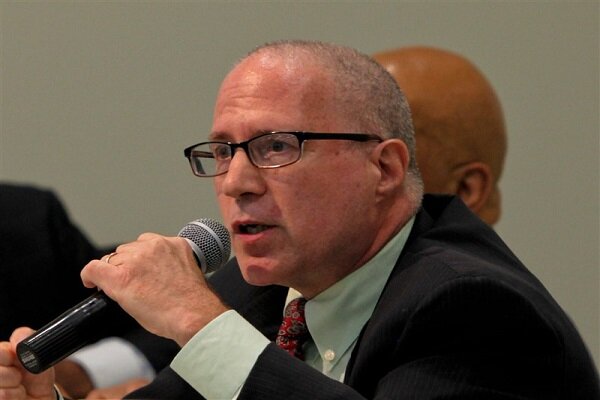The way the UN is structured it cannot be a force for defending Palestine: American analyst

TEHRAN - Myles Hoenig, an American political analyst, believes that the situation in Palestine is “desperate”, as the U.S. is using its veto power in the UN to prevent any kind of resolution in favor of the Palestinian people.
“The way the UN is structured, it cannot be a force for defending Palestine. With the U.S. having such enormous veto power, even resolutions calling for an end to hostilities are not permitted. With Trump in office, even with the U.S.’s veto power, many of the other major powers might have had less reluctance to step in, but with Biden, it’s back to ‘normal’ with Palestine being the ultimate loser,” Myles Hoenig, who was a 2016 Green Party candidate who sought a seat at the U.S. House to represent the 7th Congressional District of Maryland, tells the Tehran Times.
The text of the interview is as follows:
Q: How do you characterize the current situation in Palestine?
A: The situation in Palestine is desperate but no less than any other time of such troubles. A difference now is that there is much stronger support for Palestine, especially in the U.S. for those who don’t rely on mainstream media, and also especially among American Jews (not the AIPAC crowd, though). Even though social media has been strong for quite a few years, there seem to be more outlets that are available to show the live-action, on-the-ground atrocities being committed by Israel.
Also, some leading institutions are showing a desire to be less obsequious to the diktats of Israel. The Guardian of England recently published its shame over its support and facilitation of the Balfour Declaration. Members of the U.S. Congress are openly challenging the Israeli occupation and putting financial demands on Israel. We have been seeing a sea change for a few years now. Perhaps this latest round of atrocities will be just too much for more and more mainstream individuals, not just the media.
Q: How long do you think this conflict will take to settle down?
A: The siege of Gaza in 2008 lasted nearly three weeks. But that occurred between American presidencies. President-elect Obama remained silent on the siege, even though he was quite vocal on the massacre in Mumbai at the same time. This clearly showed where his administration was headed on the issue, being much the same as previous administrations.
It’s hard to say with what’s happening now how long it will last. Much will be based on how much support Palestine receives worldwide. Already in the UN, the U.S. is preventing any kind of resolution and the State Department refuses to accept that Palestine, an occupied people, has a right to self-defense, as is permitted in international law.
A pessimist would look at Yemen and see a horrendous war going on, with the support of the U.S., with no abatement. Perhaps the situation would have greater exposure, as the media does not ignore the situation, even if it does take the side of Israel.
Q: Why are international organizations, specifically the UN, silent? What about Arab regimes?
A: The way the UN is structured, it cannot be a force for defending Palestine. With the U.S. having such enormous veto power, even resolutions calling for an end to hostilities are not permitted. With Trump in office, even with the U.S.’s veto power, many of the other major powers might have had less reluctance to step in, but with Biden, it’s back to ‘normal’ with Palestine being the ultimate loser.
Q: What will be the domestic and regional consequences of this conflict?
A: Domestically, in the U.S., people are horrified as to what’s going on. The concept of proportionality is front and center and eventually, even the so-called liberal press will have to address this issue. However, they’re still likely to talk about violence on both sides without accepting that it rocks vs. F15s.
Internationally, Israel has successfully brought in Arab dictatorships to its side in the fight. The last thing they would want is to see an oppressed people, regardless of whether they are Muslim or not, and many are Christian, to be able to rise up successfully against oppression and corruption, as is the rule in these countries.
Q: In your view, why did Netanyahu start this conflict through-provoking Palestinians?
A: When presidents are facing difficult times at home, whether it be personal or political, changing the subject always works, even if it’s for a short time. Tuesday began the continuation of Netanyahu’s corruption trial and he’s also in the middle of fighting for his political life, which would prevent prison if so convicted. Israel does have a real history of jailing its highest leaders, unlike its financial backer, the US. Also, much like in the U.S., war or the imaginary existential threat to its survival is always a winning issue for an embattled president or Prime Minister.
There’s also the case that the ethnic cleansing of Sheikh Jarrah is close to being finalized and public opinion, and even the courts, are taking note and turning against him.
Leave a Comment